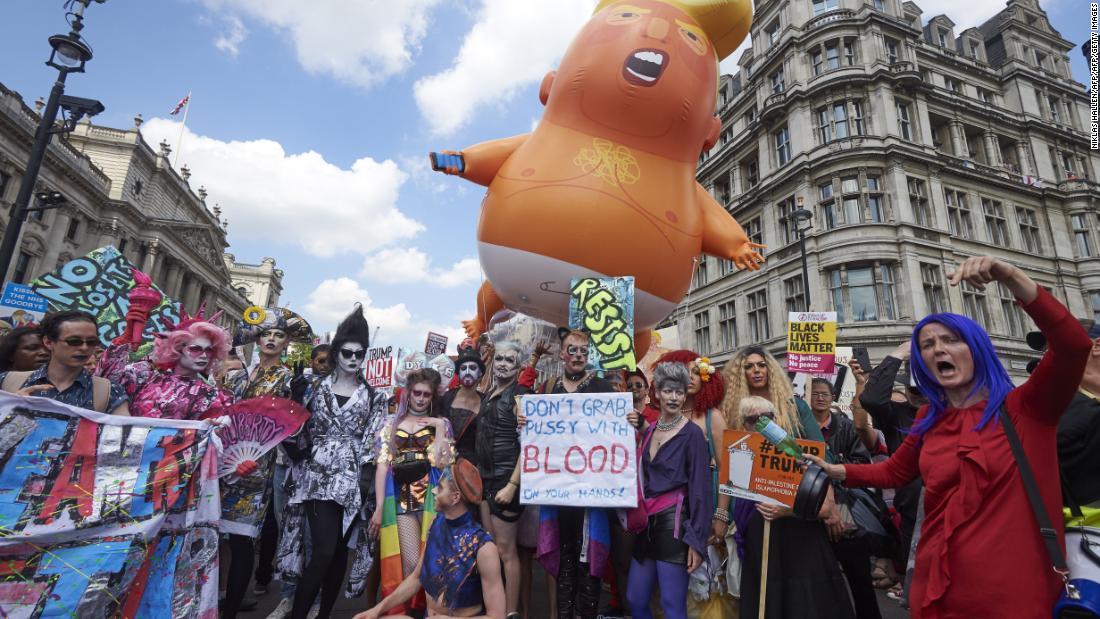This is hardly news. Authors Bob Woodward and Michael Wolff have comprehensively covered the dysfunction at the Trump White House in their best-selling books.
But the real issue is not the embarrassment caused by the cables, but the true state of the connection between the United States and the UK — which has been called the “special relationship” ever since former British Prime Minister Winston Churchill used the phrase in his famous “Iron Curtain” speech in 1946. By almost any measure, that special relationship is now defunct — politically, militarily and economically, even if it still lives on at a vestigial, cultural level.
Sure, Trump may extol the virtues of Queen Elizabeth II, which is all part of his long fascination with the royal family. In the 1980s, Trump reportedly circulated a rumor that Prince Charles and Princess Diana were considering buying an apartment in Trump Tower. Shortly after Diana died in a car accident in Paris in 1997, Trump told an interviewer he would have had a “
shot” at dating her. Nice!
But beyond his affection for the royals, Trump has no hesitation in dumping on British leaders. He has repeatedly denigrated the outgoing UK Prime Minister Theresa May. On Monday, Trump
tweeted, “I have been very critical about the way the UK and Prime Minister Theresa May handled Brexit. What a mess she and her representatives have created.”
On Tuesday, Trump described May’s handling of Brexit as “
foolish.”
For the moment, Trump treats British Foreign Secretary Boris Johnson, the front-runner to replace May as Prime Minister, with a measure of respect, but that can change on a dime.
Recall that Trump
described incoming US Secretary of State Rex Tillerson as a “world-class player.” After Trump fired Tillerson, he called him “dumb as a rock.”
Beyond all that, Britain itself is simply no longer one of the great powers upon which the “special relationship” was in part predicated.
Trump will leave office in either January 2021 or January 2025, and his impact will eventually recede — but however Brexit goes down, it will inflict lasting damage on the British economy.
Since the Brexit vote three years ago, the pound has lost around
20% of its value against the dollar.
A “hard” Brexit from the European Union in October, which Johnson has left open as a possibility, would likely be a
catastrophe for the British economy. On Tuesday, the pound fell to a
two-year low because of fears of such a “hard” Brexit.
Meanwhile the British military, which used to “rule the waves,” has
decreased in size every year since 1952 and now numbers
less than 150,000 personnel, which is smaller than the size of the
US Marine Corps.
Trump may be “inept,” as Ambassador Darroch cabled to London, but he presides over the
largest economy in the world and the most capable military, and whoever succeeds Trump will likely have the same good fortune.
Whoever succeeds Theresa May will preside over an economy in which
overseas investment is at its lowest level since the 2008 crash, and a military that can
barely deploy overseas.
The US-UK special relationship survives only on fumes because of various forms of nostalgia symbolized by the Queen — but it isn’t really so special anymore, as the British military continues to shrink, and its economy appears poised to take a bath with Brexit moving forward.
When Churchill, the son of an English lord and an American heiress, trumpeted the special relationship in 1946, Britain and the United States had together just defeated the Nazis.
That was all a long time ago. And that kind of partnership today seems as distant as the presidency of Donald Trump is from the presidency of Franklin Delano Roosevelt.




